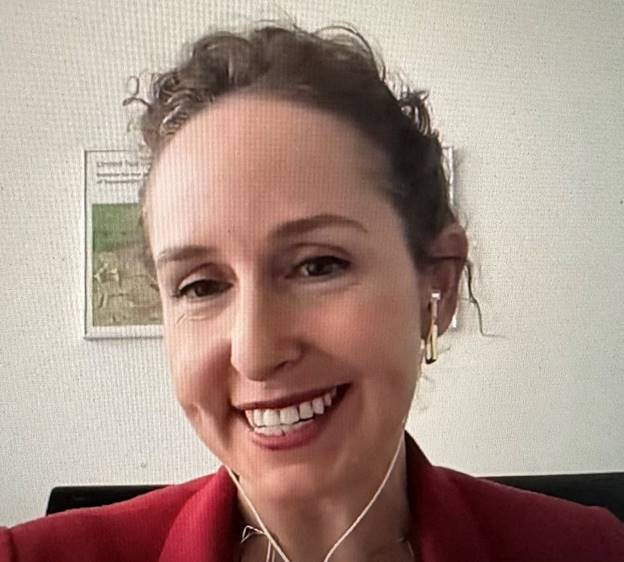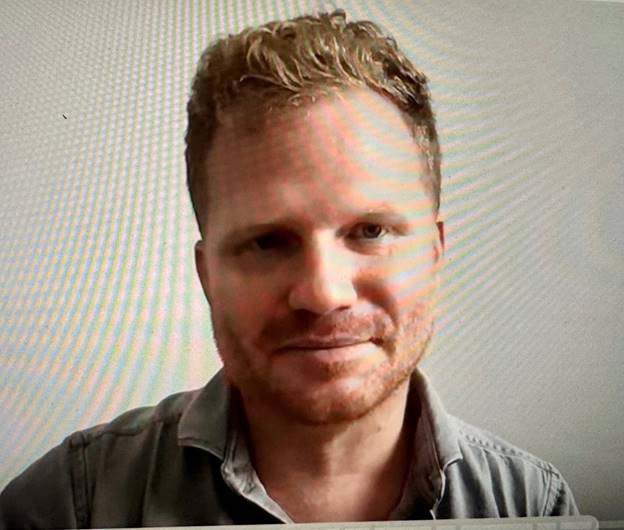

New Book Delves into Use of Proxy Forces by US Military
By Elaine Pasquini
Washington: In her new book, Illusions of Control: Dilemmas in Managing U.S. Proxy Forces in Afghanistan, Iraq and Syria, Dr Erica Gaston addresses the difficulties of attempting to control proxy forces as a part of US foreign policy or actual American warfare.
The author heads the conflict prevention and sustaining peace program at the United Nations University Center for Policy Research in New York.
Speaking to Adam Weinstein, deputy Middle East director of the Quincy Institute, in an August 8, 2024, Zoom interview, she began with defining the meaning of “proxy” as used in her book’s title.
“A proxy force is basically a force that is going to go out and do something for you; so if there is a terrorist threat or some other security manifestation that is going on, instead of directly sending your own forces you are going to pay…states forces, nonstate forces or rebel militia forces…to act as a proxy for you,” Gaston said. Proxy forces “are not always direct, but in many cases these forces are already fighting their own battle and have their own interests so they are happy to take funding but might be pursuing their own agenda.”
Responding to Weinstein’s inquiry as to what considerations would motivate US decision-makers to use proxy forces instead of US troops on the ground, Gaston said that even though there were tens of thousands of US forces in Iraq and Afghanistan, “it still was a bit of a savings in terms of troop deployment,” noting also that the local fighters often know the area better than the national fighters that might be coming from Baghdad or Kabul. “They speak the languages,” she added. “They know exactly who is an insurgent or a terrorist-affiliate, or who’s not. There is that local knowledge that happens.”
At one point, Weinstein recalled, the US State Department and international partners expressed concern about using the Afghan police. “In 2008, the US special operations forces would embed in local communities that they would pick where they thought there was a risk of Taliban resurgence and they would raise up the Afghan local police,” he said. “Previously, they had tried to create the Afghan national police but that wasn’t that much of a success. When the US first intervened in Afghanistan they wanted to strengthen institutions… but over time it became clear that you needed to have community based policing in order to hold all of this territory because the Afghan state simply wasn’t strong enough or big enough to do all of this and US troops at this time were distracted in Iraq so we didn’t have enough US troops in Afghanistan either.”
Gaston noted the US believed proxy forces would be appropriate in Afghanistan because “you have this strong culture of local community control and decentralization.” Basically, special forces started small pilot experiments that allowed them to deploy a couple of hundred forces in key areas.
But, for that, they needed more money, she said, and even Karl Eikenberry, the US ambassador at the time, voiced concerns, saying he was “worried” about the program and that it “looks like a quick shortcut to trouble.”
The US special forces Gaston spoke to on the ground in Afghanistan said they were skeptical about proxy forces because “if there is one country that might give you pause about mobilizing militias, it’s Afghanistan.” According to Gaston, the most famous example of proxy blowback was when the US-backed fighters that were fighting against the Soviets in the 1980s later spun-off and some of them became al-Qaeda. In talking to US forces who were trying to manage these, they voiced concerns about proxies they might supervise that would possibly sell the weapons on the black market, she said.
Some US military forces were also concerned about paying attention to local community dynamics with respect to ethnic rivalries; but, for the US to use proxy or local forces, approval had to be given by the Afghan government which placed a large emphasis on having some of these forces come under community control, Gaston said. They wanted to ensure that tribal elders in a region had a voice in who was chosen and whether there was going to be a force present or not. And, in order for the Afghan government to buy into it, their number one request was that it come under Afghan institutions. “So, in the end these forces come under the chief of police in each local area, which in many of the areas where these forces are then mobilized becomes a real corrupting force,” Gaston said.
Weinstein pointed out that “while we might not want to have boots on the ground, we still want to be a player on the ground.”
One of the problems with proxy forces, Gaston noted, is “you are half-in and half-out. You’re still engaging, and you can still do a lot of damage with it but maybe you’re not engaging enough to actually address some of the issues on the ground.”
In conclusion, Weinstein said: “Sometimes I think we delude ourselves that we’re not involved in interventions, or we’re not involved in wars abroad, when we are even if it’s with a few hundred advisors, but we’re still using a proxy force and we’re very much shaping conditions on the ground either for better or the worse.”
(Elaine Pasquini is a freelance journalist. Her reports appear in the Washington Report on Middle East Affairs and Nuze.Ink.)

